RESOURCES
RESOURCES
Five myths about importing from China…
Trampoline and Product Sourcing Information Page
24 March 2020
1. You are dealing directly with a factory.
Although it may seem as if you are dealing directly with a factory when you initially inquire about a product you wish to have made, what you see on that supplier’s website may be very far from reality. More often than not those suppliers are nothing but intermediaries who are hiding behind the computer screen dealing with your requests. This generally means that they themselves do not have the capacity to produce the desired product that you are looking for, even though they may tell you otherwise. They will find somebody to subcontract it at a cheaper price therefore meaning that your delegations have not been directly with the factory, but instead a supplier who will try and find the cheapest way to produce that product.
2. Once you get the sample, the finished products will be the same.
Unless you are asking for Samples and checking them during the process of negotiation, the finished products will generally not be the same as the samples that you had received. The best way to ensure that you are getting the desired product that you paid for is by asking for a samples and then providing feedback on what they can improve or do differently. However, what most people do not know is that it is also important to ask your supplier for samples of the product throughout the different stages of mass production to double check and ensure that the product that is being developed is the desired one which many people do not do, leading to the finished product being different from the one in which they received as a sample. Checking samples thoroughly during the process of creation and delegation with the supplier is important for many reasons. The primary reason being that you are ensuring that you are getting the product that you paid for. If you do not undertake regular checks of the product it is most likely that the container will be shipped to you containing products that are completely different to the product you had approved when looking at samples.
3. You do not need to check that every order has been made.
Following the above point, it is important that you are constantly checking your orders over the course of your shipments as the supplier can swap out the parts that go into making the product at any time if it means that it is cheaper for them to produce. Therefore it is important to check over time because your first shipment may be different to your second shipment as they can replace parts with cheaper options. This ultimately means that the overall quality of the end product can change. This is when it is helpful to have someone you know and trust in china doing spot checks as the product is being produced and shipped to ensure the quality is that of which you are looking and paying for.
In their changing of your products parts it means that the product is cheaper for them to produce. An example of this may be that in order to produce a highlighter they charge you $6 per highlighter however they find someone who can make it for $4 therefore meaning that they are making more money as they save $2 on each unit made at the substitution of a part of the product.
4. The Chinese work twenty-four seven.
Contrary to popular belief the Chinese do not actually work twenty-four hours a day and seven days a week, they do have breaks that include two week long breaks and Chinese new year which can see the production or shipment of your product be delayed by up to a month. As the Chinese have ‘shutdown’ periods during the year it is crucial to plan both the development and the shipment of your order ahead of time top ensure you do not get caught needing a delivery when no one is working.
It is especially important to do this in the lead up to the Christmas period which is one of the busiest periods of the year as they experience a shutdown in October which is when they would be producing your product for the Christmas rush. You may talk with your supplier, a colleague who lives in china or even visit the warehouse yourself in order to ensure that they know your ideal timeline of production and shipment to make sure nothing goes wrong, especially at the end of the year.
5. If something goes wrong, it will be replaced.
This is not always the case, if you receive your product to find that there has been a miscommunication and the product is not what you had pictured and you contact the supplier they may not get back to you in time or at all. This may be that a part in the finished product is different or not the quality that was expected, however as it has been paid for and created the factory may do very little to help you out. It is times like this when having a repour with either the supplier or those working within the factory can be very handy as it will allow for more communication to take place ensuring not only that the quality of the product is what was expected but also if something goes wrong upon the delivery of the product that it will most likely be sorted due to that relationship with the supplier. Whether you’re a seasoned yogi or a beginner stepping onto the mat for the first time, our diverse range of classes caters to all skill levels and goals. Guided by experienced and passionate instructors, each session is crafted to help you enhance flexibility, build strength, and find inner peace. Enjoy the convenience of accessing live and on-demand classes at any time, making it easy to fit yoga into your busy schedule. Our interactive platform fosters a sense of community, allowing you to connect with fellow practitioners and receive personalized feedback. Embrace a healthier lifestyle and cultivate a mindful practice with our Online Yoga Classes, where your journey towards balance and well-being begins.
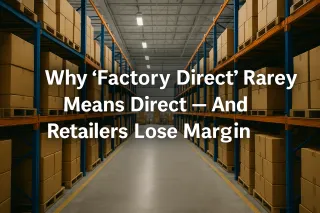
Why “Factory Direct” Rarely Means Direct — And How Retailers Lose Margin
New Blog Post DescriptionMost ‘factory direct’ suppliers are intermediaries. Here’s how retailers quietly lose margin — and how to take back control of your pricing, quality, and supply chain. ...more
Supply Chain Insights
November 19, 2025•2 min read
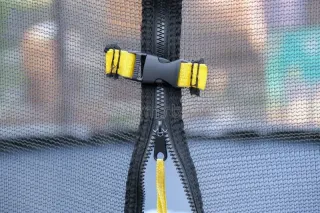
How to Choose the Right Trampoline Enclosure Netting for Safety & Durability
A complete guide to trampoline enclosure netting: mesh density, UV protection, filament grades, stitching quality, and factory testing. ...more
Trampoline Sourcing
October 15, 2025•2 min read
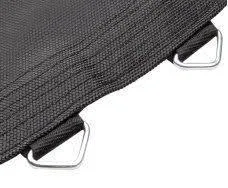
How to QC Test Trampoline Mats Before They Leave China
Learn the essential QC tests for trampoline mats — tensile strength, stitching, V-rings, UV protection, and sampling — to avoid defects before shipping ...more
Trampoline Sourcing
August 12, 2025•2 min read
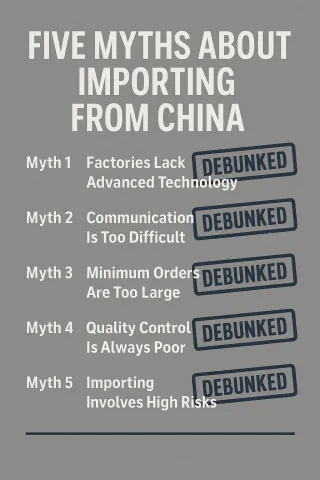
Five myths about importing from China…
Importing from China isn’t what most people think. We break down the top five myths and reveal what really matters when choosing factories and managing quality. ...more
Supply Chain Insights
June 02, 2025•5 min read
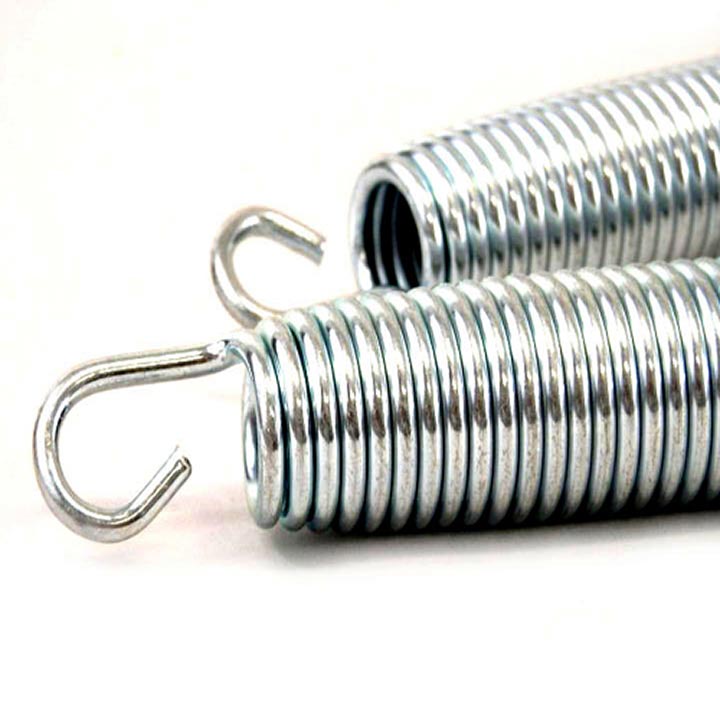
The Ultimate Guide to Sourcing Trampoline Springs
Trampoline springs determine bounce quality, safety, and lifespan. Learn how wire grade, coil tension, plating, and QC testing affect performance — and how to source premium springs from China. ...more
Trampoline Sourcing
June 01, 2025•2 min read